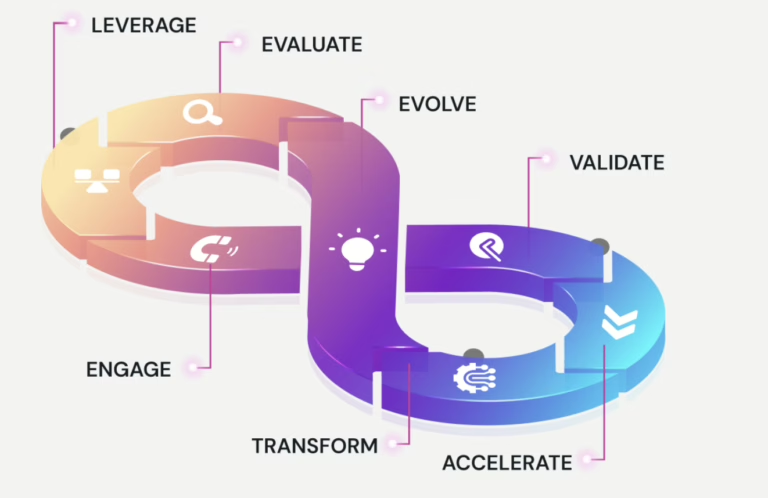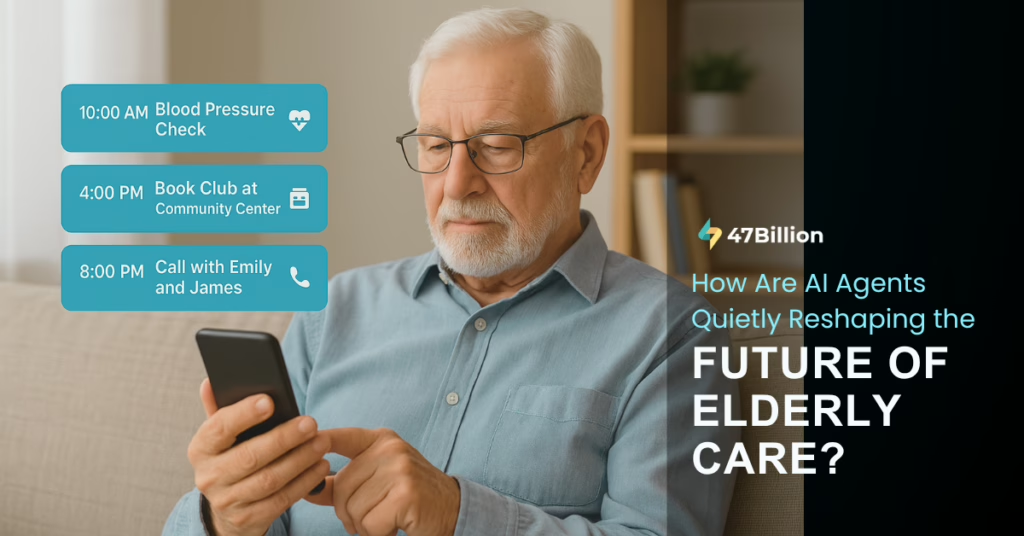By 2050, the global population aged 60 and over is expected to double, reaching more than 2 billion. At the same time, the ratio of caregivers to seniors is steadily decreasing, putting unprecedented pressure on senior care systems. Traditional care models, heavily dependent on human labor, are not scalable for this demographic shift. The solution may lie in a quiet revolution already underway: the emergence of AI agents in senior care.
AI agents are not merely chatbots or robotic assistants. They are intelligent, autonomous systems capable of performing tasks, understanding context, and responding empathetically. In the realm of senior care, they promise not only efficiency but emotional support, companionship, and proactive health management.
The research that backs it several institutions are exploring the integration of AI agents into senior care with promising results –
- The MIT AgeLab is researching AI companions to improve emotional engagement and reduce loneliness among the elderly.
- At the University of Southern California’s Center for AI in Society, studies have shown that elderly patients who interact with empathetic intelligent virtual assistants for seniors experience a 19% improvement in daily mental wellness.
- Stanford’s CARE initiative is piloting AI-driven elder care platforms to monitor medication adherence, detect anomalies in behavior, and alert caregivers. These systems have demonstrated over 92% accuracy in identifying early warning signs.
These research-backed implementations indicate that AI-powered healthcare for seniors can play a critical role in addressing both physical and emotional well-being in seniors.
What Are AI Agents in Senior Care? Three core functions can define AI agents in senior care –
- Conversational AI: Engaging seniors in meaningful dialogue, reminding them of daily tasks, offering medication prompts, and providing companionship. These are commonly seen in intelligent virtual assistants for seniors.
- Sensor-Integrated Monitoring: Detecting falls, changes in sleep or activity patterns, and real-time health vitals through connected devices, supporting remote health monitoring for elderly patients.
- Emotionally Aware Intelligence: Using voice tone, facial expression analysis, and behavior tracking to assess emotional states and respond empathetically.
Real-Life Impact – Transforming Day-to-Day Living. The daily impact of AI for elderly care can be profound –
- Around-the-Clock Support: Unlike human caregivers, AI systems offer 24/7 engagement and monitoring without fatigue.
- Empowered Independence: Seniors retain their autonomy while getting timely prompts, assistance, and alerts via AI-enabled fall detection systems and more.
- Cognitive Stimulation: Regular conversation and activities suggested by AI agents help delay cognitive decline.
- Reduced Caregiver Burnout: Family members and professionals gain peace of mind and time to focus on high-priority care.
Challenges and Ethical Considerations Despite the promise, the adoption of artificial intelligence in senior care is not without challenges –
- Data Privacy: Systems must be HIPAA-compliant and handle sensitive health data securely.
- Emotional Substitution: While AI can simulate empathy, it cannot fully replace human connection.
- Technological Barriers: Some seniors may struggle with interacting with digital interfaces, though voice-first design is helping mitigate this.
- Bias and Misinterpretation: Algorithms must be trained on diverse datasets to ensure accurate interpretation of senior behavior.
The Future – Hybrid Care Models. The future of senior care isn’t about replacing humans with machines. It’s about augmenting care with custom AI healthcare solutions that support both seniors and their human caregivers. Hybrid models—where AI handles routine tasks and alerts, while humans provide emotional and complex care—can optimize outcomes and make care more scalable and affordable.
There are various types of AI in senior care that are emerging, ranging from simple reminder systems to advanced emotional intelligence engines, each playing a unique role in modern caregiving.
Conclusion – A Call for Companionship based Innovation As the world ages, the need for innovative, scalable, and emotionally intelligent care models becomes urgent. AI in home healthcare and elder care offers a path forward—not as a replacement for human touch, but as a compassionate augmentation. With the right blend of technology, ethics, and empathy, AI can help us reimagine senior care as not just a service, but a dignified and empowering experience.
Let’s not wait for a crisis to innovate. Let’s build care systems that think ahead.







